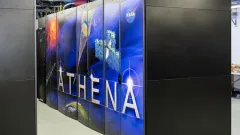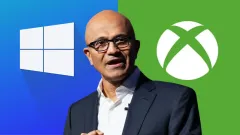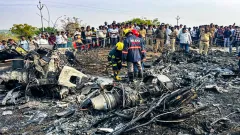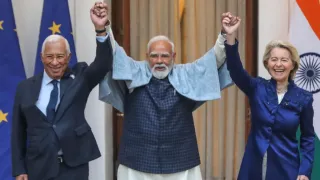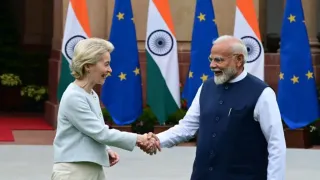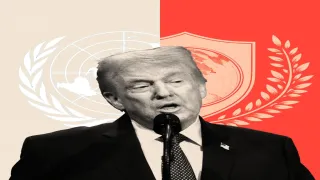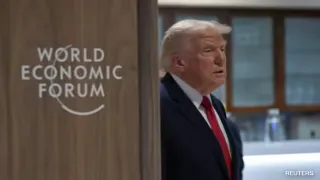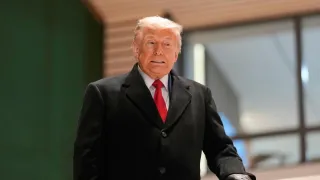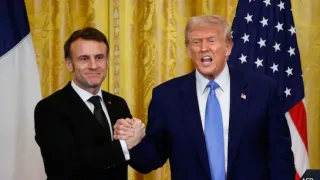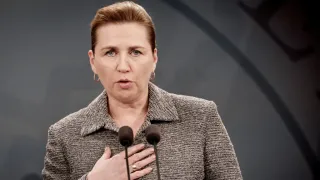In a bold and controversial statement that has reignited global nuclear debates, former U.S. President Donald Trump has claimed that Pakistan is among several countries actively testing nuclear weapons. His remarks have sparked widespread reactions, both within the United States and abroad, as discussions around nuclear power, deterrence, and global security gain fresh momentum. The conversation comes at a time when global tensions are already high due to rising military assertiveness from major powers like Russia and China.
Speaking during an interview with CBS News, Trump emphasized that the United States cannot afford to be left behind while other “powerful nations” continue to test nuclear devices in secrecy. He hinted that countries such as Russia, China, North Korea, and Pakistan are conducting underground nuclear experiments that are not being openly reported, asserting that the U.S. must also resume testing to maintain its technological edge and strategic superiority. His comments have been interpreted as both a warning and a call to re-establish what he calls “nuclear order.”
According to Trump, while nations like Russia and China carry out their nuclear tests in secrecy, the U.S. remains transparent—an openness that, in his view, could become a disadvantage in an increasingly competitive world. He claimed that nuclear tests by adversarial nations often go undetected by the international community, as they take place deep underground. “You feel a little vibration, and that’s all,” Trump said. “They test, and we don’t test. We have to test.”
Trump’s Assertion of a Global Nuclear Revival
Trump’s statements reflect his belief that a new era of nuclear competition has already begun, one where technological deterrence defines diplomatic influence. “Russia’s testing and China’s testing, but they don’t talk about it,” he remarked, suggesting that the lack of global acknowledgment of these tests allows other nations to gain silent advantages. Trump’s view is that if global rivals are advancing their nuclear arsenals, the U.S. should not remain passive or restrained by outdated treaties.
In his conversation with CBS, Trump linked the issue of nuclear testing to national pride and safety, claiming that America’s strength depends on maintaining superior military and nuclear capabilities. “We have to test because they test and others test,” he said, underscoring that the balance of power rests on visible demonstrations of capability. Trump’s comments come against the backdrop of Russia’s recent trials of advanced nuclear-capable systems, including the Poseidon underwater drone—a development that many analysts believe has prompted renewed nuclear concerns in Washington.
The Strategic Context Behind Trump’s Statement
Global experts interpret Trump’s statements as a reflection of mounting geopolitical anxieties. Over the past few years, the boundaries of nuclear deterrence have blurred as nations experiment with new delivery systems, hypersonic vehicles, and next-generation deterrence models. Pakistan, a nuclear power since 1998, remains a key player in South Asia’s strategic balance. Trump’s reference to Pakistan has raised questions about intelligence reports, as there has been little public confirmation from official U.S. sources regarding recent Pakistani nuclear tests.
Trump’s stance, however, is clear: he envisions a world where nuclear testing is normalized to maintain preparedness. He hinted that while the United States follows international transparency protocols, rival nations operate covertly. “They test way underground where people don’t know exactly what’s happening,” Trump noted, suggesting that secrecy allows those nations to develop new technologies without scrutiny. His statement aligns with his broader “America First” philosophy, which emphasizes self-reliance and strategic assertiveness.
Debate Over Nuclear Morality and Modernization
Trump’s call for renewed U.S. nuclear testing has triggered both criticism and support. Advocates argue that technological modernization is crucial for maintaining deterrence and ensuring that existing weapons systems remain reliable. Critics, however, warn that reinitiating nuclear testing could dismantle decades of progress made through treaties like the Comprehensive Nuclear-Test-Ban Treaty (CTBT), even though the U.S. never formally ratified it.
According to defense analysts, the statement may also serve as a political maneuver to reinforce Trump’s hardline image ahead of possible future electoral campaigns. Nevertheless, his rhetoric reflects a significant ideological shift toward aggressive posturing—a stance reminiscent of the Cold War era, when the nuclear arms race defined international relations. “We have enough nuclear weapons to blow up the world 150 times,” Trump said, emphasizing America’s massive arsenal compared to other countries.
Clarifications from the U.S. Administration
Following Trump’s comments, U.S. Energy Secretary Chris Wright offered clarification, stating that no nuclear explosions are currently being planned. Wright explained that the upcoming tests are “non-critical” and part of system checks meant to evaluate the structural integrity and functionality of nuclear delivery systems. “These are not nuclear explosions,” Wright stated in an interview with Fox News. “They are system tests to ensure that all components work effectively together.”
Wright added that the tests would involve simulated environments designed to confirm that newer nuclear systems outperform their predecessors. This clarification was crucial, as Trump’s statements had led to speculation about the U.S. potentially breaking the decades-long moratorium on nuclear explosions. The Department of Energy’s confirmation that these are non-explosive tests indicates an effort to balance modernization goals with global diplomatic responsibilities.
Global Reaction and Strategic Implications
Trump’s remarks have sparked widespread debate in the international community. Russia and China have not issued official responses, though state-run media outlets in both nations have described Trump’s comments as provocative. Pakistan has neither confirmed nor denied conducting nuclear tests, maintaining a policy of strategic ambiguity. North Korea, meanwhile, continues to defy international restrictions, having conducted multiple nuclear tests over the past decade.
Strategic experts warn that Trump’s rhetoric could inspire a new nuclear race among emerging powers. “Once a major country like the United States begins testing again, it provides justification for others to follow suit,” noted Dr. Alan Matthews, a senior fellow at the Global Security Institute. This potential escalation could undermine years of arms control efforts and complicate future disarmament negotiations.
Trump’s Vision for a “Nuclear Order”
When asked about his ultimate objective, Trump described his idea of a “nuclear order”—a world where nuclear strength determines diplomatic respect. He claimed to have discussed denuclearization with Russian President Vladimir Putin and Chinese President Xi Jinping but insisted that the U.S. must remain the most formidable power. “We’re not going to be the only country that doesn’t test,” Trump said. “Others are doing it, and we have to keep up.”
Trump’s rhetoric has revived discussions about the future of international arms agreements and raised critical questions about whether deterrence can coexist with disarmament. His comments reflect an era where global competition increasingly prioritizes strength over cooperation. For now, the world watches closely to see whether Trump’s nuclear ambitions translate into concrete action—or remain part of his broader narrative of American dominance.
Conclusion: A World on Edge
Trump’s remarks about Pakistan testing nuclear weapons and his insistence that the U.S. must resume testing have thrown the spotlight back on the global arms race. Whether these comments will lead to tangible policy changes remains uncertain. However, the implications are profound: a shift toward renewed nuclear testing could destabilize the fragile equilibrium that has existed for decades.
As nations navigate this new geopolitical reality, Trump’s statements serve as a reminder that nuclear deterrence continues to shape the world order. The tension between security and diplomacy, secrecy and transparency, power and restraint remains unresolved—and the consequences of this renewed nuclear debate may define the next chapter of global politics.
Also Read: James Webb Reveals Shocking Transformation of Comet 3I/ATLAS




